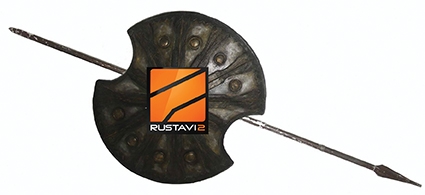Watching Rustavi 2
OP-ED
Rustavi 2 TV, like any other TV station in Georgia save the Public Broadcaster, happens to be a direct product of the idea of media pluralism, the advent of which was seen in former soviet and eastern European countries, the nations of the so-called socialist camp, at the end of the ‘roaring’ 80s.
The 70-year soviet monopoly over the means of mass communication was lifted overnight, opening the way for a multitude of media companies to establish the concept of freedom of speech, never before seen in Russia or its satellites, including our Georgia. Before that we had to satisfy ourselves with just a single state-owned radio and television system throughout the entire soviet space. The smaller local television channels and radios were a mere continuation of the holistic soviet electronic media monolith. All of us loved, watched and enjoyed it because there was nothing else to love, watch and enjoy. We lived in an emotionally balanced and stiffly standardized, ideologically pristine and impenetrable environment, deafening and blinding us to the raging noise and colors of the rest of the world.
Today, in our little Georgia of a hardly one million viewership, our attention is spread across more than 50 different television channels and as many radio stations, all operating in this small but totally saturated media market. The pie to nibble on is tiny, so the players of commercial media can only put their hands on a miniscule slice of it, if any at all. Most go hungry, supported by their owners or mother companies alone.
This is a typically Georgian way of working, when it is OK to have a non-remunerative business and still run it, something I will never understand. I suspect the root cause lies in that some of us crave to have certain clout in society, for which we are ready to use our own funds- even if that means spending money which was never made.
Regardless of the fact that most of the broadcasting TV companies fail to make money, they still want to remain in the market and, surprisingly, their electronic toys in the hands of youthful personnel are still the subject of financial transactions, meaning that they are often bought and sold, especially the ones that represent some commercial value.
Rustavi 2 would be the most vivid example of the act of changing hands, although I have never seen a clearly written ‘biography’ of the company with a precise stipulation of the owners’ names, exact dates of done deals, the amounts of each and every knee of the effected transactions, the levied taxes, and the legally correct documentation thereof.
The previous owner of Rustavi 2 unfairly forfeited the right to own his own TV company; years have passed since the deal, which was violently imposed on him, took effect, as a result of which he emigrated, only to recently reappear to claim back his property. This was interpreted in totally different ways by the government and its opposition – the former putting it as part of restored justice, and the latter interpreting the situation as the act of killing freedom of speech in the country.
Society is divided over the issue: some think it fair to honor the former owner with the right court decision; some consider the entire hullabaloo as a flagrant breach of freedom of expression; some are tired of the unmitigated noise made by the case, and others are radically disparaging the editorial style and content of Rustavi 2 itself.
The buffs of the disputed TV station took to the streets, garnering several thousand viewers in front of the parliament building in Tbilisi. Speeches, petitions, emotions, criticism, appeals, placards, manifestations; all in obvious abundance ... Conclusions? On their way! Decisions? Not so far! Results? Unknown!
The main question? Should the government be overly concerned about the goings-on related to Rustavi 2. My diligently thought-over and affordably educated guess would be a clear “No,” and here is why: The recent rally worked to the governmental cause, showing to the world that freedom of speech and democracy are in full swing in Georgia, and proving to our own people that this leadership has a very different style of management from the previous one.
Concerning the finale of the case, I would appreciate a governmental effort to find an ideal solution to the dilemma, compensate the sufferers and leave the TV station alone. Let them continue working in the format and content they are executing right now, because they are airing fumes that need to be aired. If those fumes are allowed to accumulate, it might be more dangerous for the regime than the releasing of said fumes.
Nugzar B. Ruhadze












